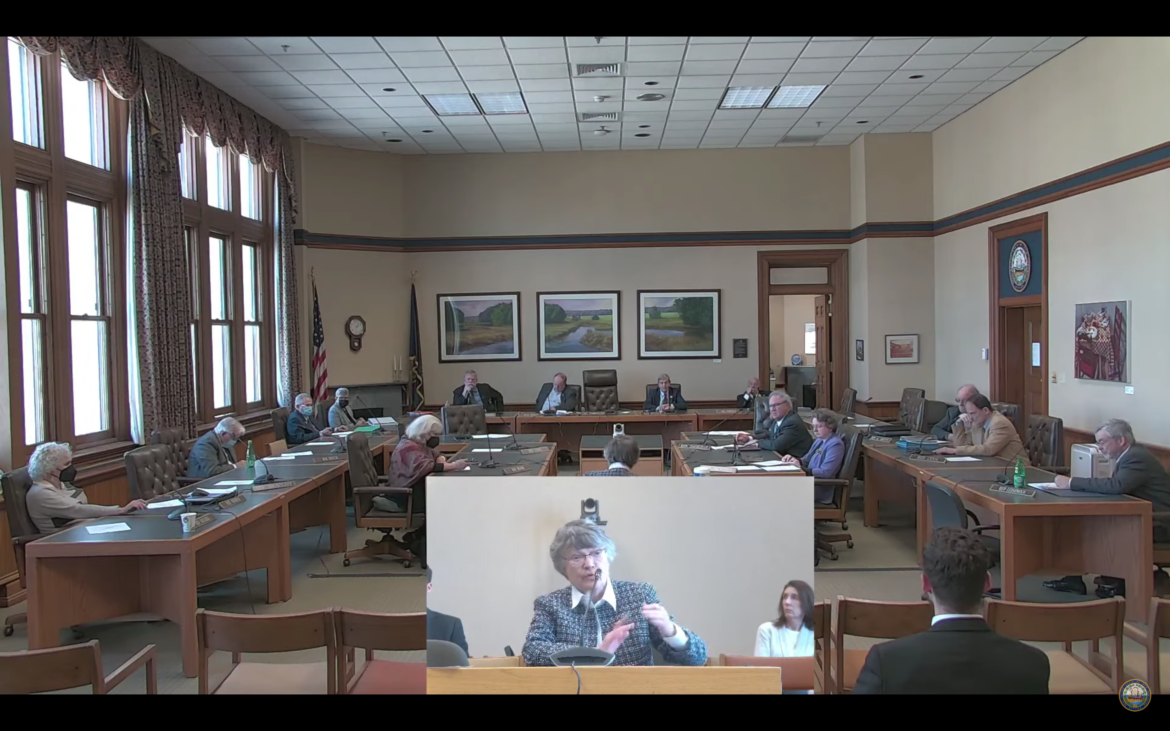By GARRY RAYNO, InDepthNH.org
CONCORD — Lawmakers are considering joining a federal pilot program linking families on Medicaid to the free-and-reduced lunch program in public schools.
The U.S. Department of Agriculture pilot program would automatically enroll those receiving Medicaid services in the free lunch program.
The number of children on the free-and-reduced lunch program is one factor used to determine the state adequacy aid a school district receives.
The state is currently using 2019 data in awarding adequacy aid to schools because a federal waiver has allowed all students to receive free-and-reduced lunches and breakfasts since the pandemic began two years ago.
The waiver is expected to end when this school year does.
House Finance Committee chair Karen Umberger, R-Kearsarge, said a study group of some Finance and Education Committee members has been reviewing education funding issues and would like the state to join the pilot group.
She said 98 percent of parents would no longer need to fill out the free-and-reduced-lunch form, which will help both the parents and school districts, although some parents who are income eligible, but have their own health insurance, would still need to fill out the form.
She said linking the program to Medicaid services would increase the number of students eligible for services and also increase the amount of money districts receive in state education aid and under the federal Title 1 program.
Umberger said participating in the pilot program would provide up-to-date data to set school district grants.
She said it has not been determined what the financial impact would be, but it will allow the state to see how it would work before making a final decision.
“This is a way to sort out how many children we actually have in public schools on free-and-reduced lunch,” Umberger said, and noted it would also apply to students using the Education Freedom Account program.
Committee member Rep. Mary Heath, D-Manchester, said it will mean more students will have access to free lunch and breakfast, and better nutrition.
Henry Lipman, state Medicaid director, said in theory providing additional meals to children in the Medicaid program should ultimately reduce health service costs going forward.
Committee member Rep. Ken Weyler, R-Kingston, asked if there would be “over counting” by using the Medicaid data to determine how many receive free lunches and breakfasts.
Mark Manganiello of the Department of Education said it would be difficult to prevent any over-counting, noting the program is intended to identify children whose families qualify for the nutrition program but are not participating.
“If we find more than previously known, they have to count toward adequacy, and the way the formula works, we have to fund that,” Manganiello said. “It’s hard to stop an over count.”
Weyler noted if the parents are no longer responsible for filling out the form, “all of a sudden everyone qualifies and the costs go sky high.”
Manganiello noted the parents would have to fill out the Medicaid application to qualify for the free lunch program.
The income limits are identical for Medicaid and the free lunch program, the committee was told.
Weyler also asked if a family had four children but only two were school age, would the program be able to identify that or count all four.
Lipman said the Medicaid application includes the ages of the children and that would allow them to identify only those that are school age.
Several committee members asked about the privacy of individuals participating in the pilot program.
Umberger said that was a concern of the study committee, but the members were satisfied the privacy issues had been worked out with several states already participating in the program.
She said it would be difficult to do on the state level, as Medicaid uses names and social security numbers and schools use student identifiers, but not on the federal level.
Lipman later told the committee the absolute minimum information would be shared to participate in the program.
The department asked the committee for $44,000 to defray program application costs.
McKenzie Snow of the Department of Education said the nutrition division staffing is quite small and it is an extensive application process and would like to contract with an organization or individual for the work.
State officials hope the program can be in place for the beginning of the 2022-2023 school year and the information for determining adequacy aid help set the fiscal 2024 state aid grants.
Division 2 of the Finance Committee will hold work sessions on the proposals before it comes back to the full committee for a recommendation.
The amendment allowing the state to join the pilot program would be attached to House Bill 1627, which would add a program administrator for the Education Freedom Account program at a cost of $115,000 beginning in the 2023 fiscal year.
Garry Rayno may be reached at garry.rayno@yahoo.com.





